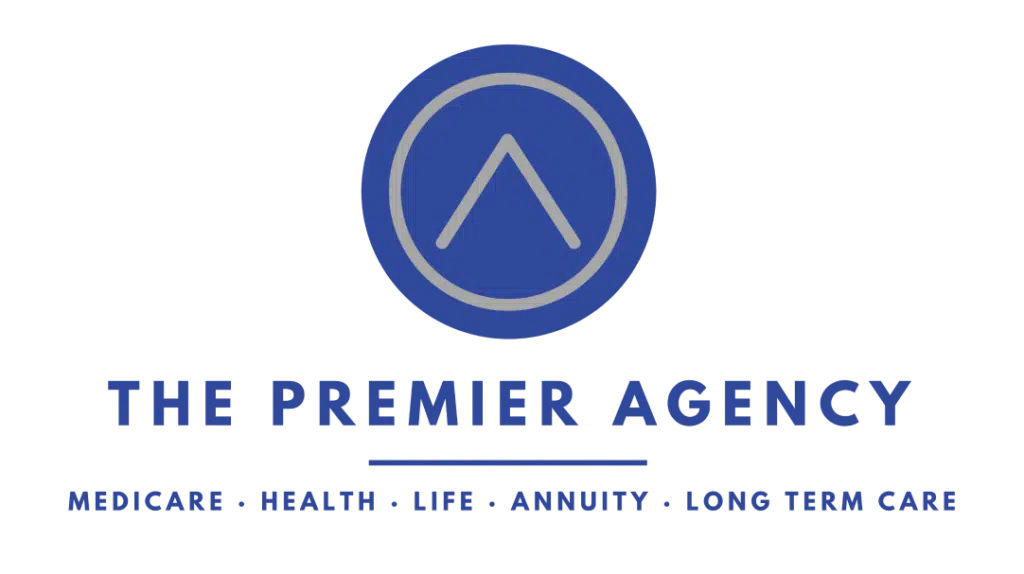Are you a health insurance agent in Arizona looking to advance your career? This article explores advanced continuing education options that can enhance your expertise and improve your clients’ quality of life. We’ll cover specialized topics like behavioral health and health equity, discuss online and in-person learning opportunities, and provide guidance on planning your continuing education journey. By investing in your professional development, you’ll be better equipped to address complex issues, such as supporting clients in foster care systems.
Key Takeaways
- Continuing education is crucial for Arizona health insurance agents to maintain licensure
- Advanced courses offer opportunities to expand expertise and enhance career prospects
- Agents can pursue specialty certifications to increase their value and earning potential
- Various learning formats, including online platforms and in-person workshops, cater to different learning styles
- Financial planning, including cost estimation and exploring funding options, is essential for ongoing education
Exploring Advanced Continuing Education Opportunities in Arizona

Health insurance agents in Arizona must fulfill state-mandated continuing education requirements to maintain licensure. Advanced courses beyond basic requirements offer benefits such as enhanced knowledge of disease management and behavioral health. These opportunities improve professional practice, potentially increasing income and enabling agents to better serve clients.
Importance of Continuing Education for Health Insurance Agents
Continuing education is crucial for health insurance agents in Arizona to stay current with evolving healthcare services and policies. By completing required courses, agents maintain their licensure and gain equal opportunity to serve a diverse clientele, including those with Medicaid. These educational efforts ensure agents can provide accurate information and guidance, earning credit for their professional development while better-assisting clients with complex health insurance needs.
Overview of State-Mandated CE Requirements
Arizona law mandates specific continuing education requirements for health insurance agents to maintain their license. Agents must complete courses covering primary care, preventive screening, and other essential topics. These requirements ensure agents stay informed about changes in healthcare laws, insurance policies, and tax implications. The state’s mandated CE program includes:
- A minimum number of hours required per renewal period
- Specific course topics that must be covered
- Approved providers for continuing education courses
- Reporting and verification procedures for completed credits
Benefits of Advanced Courses Beyond Basic Requirements
Advanced courses offer health insurance agents in Arizona opportunities to expand their expertise beyond basic requirements. These courses often cover specialized topics such as telehealth services, childcare insurance options, and immunization policies. Agents who complete advanced training may qualify for apprenticeship programs or positions at insurance centers, enhancing their career prospects and ability to serve clients more comprehensively.
How Advanced Education Enhances Professional Practice
Advanced education enhances professional practice for health insurance agents by expanding their knowledge of specialized programs like WIC (Women, Infants, and Children) and complex health insurance policies. Through continued learning, agents develop a deeper understanding of various health insurance options, enabling them to provide more comprehensive guidance to clients. This advanced knowledge also allows agents to stay current with policy changes and emerging trends in the health insurance industry, ensuring they can offer the most up-to-date and relevant information to their clients.
Accreditation and Certification Programs Available

Arizona health insurance agents can enhance their careers through accredited programs and specialty certifications. Recognized bodies offer training in areas like the Arizona Health Care Cost Containment System and income tax implications. Agents can enroll in these programs, maintain certifications, and even pursue ombudsman roles. This section explores available options and steps for professional advancement.
Recognized Accreditation Bodies in Arizona
Agents can pursue advanced education through several recognized accreditation bodies. These organizations offer programs in healthcare management, public health, and behavioral health technician certification. Agents can apply for scholarships to offset costs and enhance their expertise in specialized areas of health insurance. Accredited programs ensure agents stay current with industry standards and regulations, improving their ability to serve clients effectively.
Specialty Certifications for Health Insurance Agents
These professionals can pursue specialty certifications to enhance their expertise and employment opportunities. These certifications often require passing an exam and may cover areas such as life insurance, caregiver support, and specific programs in Maricopa County. By obtaining these certifications, agents can better serve their clients and potentially increase their earning potential:
| Certification | Focus Area | Requirements |
|---|---|---|
| Life Insurance Specialist | Life insurance policies | Exam, continuing education |
| Caregiver Support Advisor | Caregiver resources | Training course, practical experience |
| Maricopa County Health Program Expert | County-specific health initiatives | Local certification, annual renewal |
Steps to Enroll in Accredited Programs
Agents can enroll in accredited programs by following a straightforward process. First, they should research approved providers and select a program that aligns with their career goals. Next, agents must submit an application, which may require proof of current licensure and payment of fees. Some programs offer tax credits or financial counseling to help offset costs. Finally, agents should complete any prerequisite coursework and verify that the program complies with state regulations to avoid discrimination in the enrollment process.
Maintaining and Renewing Certifications
It is important to regularly maintain and renew their certifications to stay current in their field. This process often involves completing continuing education courses on topics such as substance abuse, peer support, and nutrition assistance programs. Agents can take advantage of tax credit donations to offset the costs of these courses while expanding their knowledge in areas like nutrition and health management. By staying up-to-date with their certifications, agents ensure they can provide the most accurate and comprehensive information to their clients.
Online vs. In-Person Continuing Education Options

Health insurance agents in Arizona have access to various continuing education formats. Online platforms offer flexibility, while in-person workshops provide interactive learning. Agents must balance work schedules with education commitments and choose formats that suit their learning styles. These options cover topics like disability, nursing, and health maintenance organizations, ensuring agents stay informed about higher-level industry developments.
Advantages of Online Learning Platforms
Online learning platforms offer significant advantages for health insurance agents in Arizona seeking continuing education. These platforms provide flexibility, allowing agents to study medical assistance programs, mental health policies, and patient care strategies at their own pace. Agents can access course materials from any location, making it easier to balance work commitments with educational requirements. Additionally, online courses often incorporate interactive elements and real-world scenarios, enhancing the learning experience for agents studying complex topics like college health plans and Arizona-specific healthcare regulations.
Interactive Workshops and Seminars in Arizona
Interactive workshops and seminars in Arizona provide health insurance agents with valuable opportunities for hands-on learning and community engagement. These in-person events often cover critical topics such as suicide prevention and public health, allowing agents to gain practical insights from industry experts. Supported employment programs and education initiatives are frequently discussed, enabling agents to better serve their clients’ diverse needs while fostering connections within the local insurance community.
Balancing Work Schedules With Education Commitments
Online courses offer flexibility, allowing agents to study topics like vaccine distribution and breastfeeding support during non-work hours. In-person workshops on psychiatry or reasonable accommodation may require time off but provide valuable networking opportunities. Agents can optimize their learning by selecting a mix of online and in-person options, ensuring they meet requirements while staying current on industry topics such as organ donation policies.
Evaluating the Best Format for Individual Learning Styles
Evaluate the best continuing education format for their individual learning styles by considering their preferred methods of information retention and time management skills. Those who excel in self-directed study may find online Medicare courses more suitable, allowing them to pace their learning and revisit complex topics. Conversely, agents who benefit from face-to-face interactions and immediate feedback might prefer in-person seminars on healthcare management. Agents should assess their learning preferences and professional goals to select the most effective educational format:
| Learning Style | Preferred Format | Benefits |
|---|---|---|
| Self-directed | Online courses | Flexible pacing, on-demand access |
| Interactive | In-person seminars | Immediate feedback, networking opportunities |
| Visual learners | Video-based courses | Visual aids, demonstrations |
| Auditory learners | Podcasts, webinars | Verbal explanations, discussions |
Specialized Topics for Advanced Knowledge

Health insurance agents can enhance their expertise through advanced continuing education. This section covers emerging trends in health insurance, changes in regulations, advanced risk management strategies, and customer service improvement. These specialized topics provide agents with in-depth knowledge to better serve their clients and stay competitive in the industry.
Emerging Trends in Health Insurance
Agents in Arizona can benefit from studying emerging trends in the industry. These include the rise of telemedicine services, increased focus on preventive care, and the integration of artificial intelligence in claims processing. By understanding these trends, agents can better advise clients on evolving healthcare options and anticipate future changes in insurance products and services.
Navigating Changes in State and Federal Regulations
It is important to stay informed about changes in state and federal regulations to provide accurate guidance to their clients. Advanced continuing education courses cover updates to the Affordable Care Act, Medicare policies, and state-specific insurance laws. Agents who master these regulatory changes can better navigate complex insurance scenarios and ensure compliance with current legislation:
| Regulatory Area | Key Topics | Impact on Agents |
|---|---|---|
| Affordable Care Act | Coverage mandates, subsidy changes | Advising clients on plan selection |
| Medicare | Enrollment periods, benefit updates | Assisting seniors with coverage options |
| Arizona Insurance Laws | Licensing requirements, consumer protections | Ensuring compliant business practices |
Advanced Risk Management Strategies
Courses like advanced risk management courses can enhance expertise of health insurance agents. These programs cover topics such as identifying potential liabilities, implementing effective risk mitigation strategies, and understanding the latest actuarial models. By mastering these advanced concepts, agents can provide more comprehensive advice to clients and help them make informed decisions about their insurance coverage.
Enhancing Customer Service and Client Retention
Health insurance agents in Arizona can enhance their customer service skills and improve client retention through specialized continuing education courses. These programs focus on effective communication techniques, building long-term client relationships, and addressing complex customer needs. By mastering these skills, agents can provide more personalized service, leading to higher client satisfaction and loyalty in the competitive health insurance market.
Financial Planning for Continuing Education

It is important to plan financially for advanced continuing education. This section covers estimating costs of advanced courses, scholarships and grants available, employer-sponsored education programs, and tax deductions for educational expenses. Understanding these financial aspects helps agents make informed decisions about their professional development and maintain their licenses cost-effectively.
Estimating Costs of Advanced Courses
Health insurance agents in Arizona should carefully estimate the costs of advanced courses when planning for continuing education. These expenses can vary based on factors such as course length, provider, and delivery method. Agents can typically expect to pay between $50 to $500 per course, depending on its complexity and duration. To make informed decisions, agents should compare prices from different providers and consider the long-term value of each course to their career:
| Course Type | Average Cost Range | Value Considerations |
|---|---|---|
| Basic Online Course | $50 – $150 | Foundational knowledge, license maintenance |
| Intermediate Webinar | $100 – $300 | Interactive learning, specific topic focus |
| Advanced In-Person Seminar | $300 – $500 | Networking opportunities, hands-on training |
Scholarships and Grants for Health Insurance Agents
Scholarships and grants can support continuing education programs for healthcare agents. These financial aids often come from industry associations, insurance companies, and educational institutions. Agents can apply for scholarships based on academic merit, financial need, or specific career goals. Some grants focus on underrepresented groups in the insurance industry or agents serving rural communities. Available options include:
- National Association of Health Underwriters Scholarship Program
- Arizona Insurance Education Foundation Grants
- Insurance company-sponsored education funds
- State-specific scholarships for continuing education in healthcare
Employer-Sponsored Education Programs
Many health insurance agencies in Arizona offer employer-sponsored education programs to support their agents’ professional development. These programs often cover the costs of advanced courses, certifications, and industry conferences. Agents can benefit from these opportunities to enhance their skills and knowledge without incurring personal expenses. Some employers even provide paid time off for educational pursuits, making it easier for agents to balance work and learning commitments. Common types of employer-sponsored education programs include:
- Tuition reimbursement for relevant courses
- In-house training sessions led by industry experts
- Sponsorship for professional certifications
- Paid attendance at industry conferences and workshops
Tax Deductions and Credits for Educational Expenses
Health insurance agents in Arizona may qualify for tax deductions and credits related to their continuing education expenses. The IRS allows self-employed agents to deduct certain educational costs as business expenses, including course fees, textbooks, and travel expenses for attending seminars. Agents should consult with a tax professional to understand the specific deductions available and maintain detailed records of their educational expenses throughout the year to maximize potential tax benefits.
Planning Your Continuing Education Journey

Effectively plan continuing education journey by setting professional development goals, creating a timeline, tracking CE credits, and utilizing support resources. This section outlines strategies for agents to manage their ongoing education, meet state requirements, and advance their careers in the health insurance industry.
Setting Professional Development Goals
Set professional development goals by identifying areas for growth and aligning them with industry trends. They should consider their career aspirations, such as specializing in Medicare or expanding into new markets, and choose continuing education courses that support these objectives. Agents can create SMART goals (Specific, Measurable, Achievable, Relevant, Time-bound) to guide their educational journey:
- Obtain a specific certification within six months
- Complete advanced courses in healthcare policy by year-end
- Attend two industry conferences annually for networking
- Master new insurance technologies through quarterly online courses
- Achieve a higher client retention rate through improved customer service skills
Creating a Continuing Education Timeline
Create an effective continuing education timeline by mapping out their required courses and desired advanced learning over their license renewal period. They should start by identifying state-mandated courses and deadlines, then schedule additional advanced courses to enhance their expertise. Agents can use digital calendars or planning tools to set reminders for registration deadlines and course completion dates, ensuring they stay on track with their educational goals and maintain their licensure requirements.
Tracking and Reporting CE Credits to the State
Health insurance agents in Arizona must diligently track and report their continuing education credits to the state. They can use online tracking systems provided by the Arizona Department of Insurance to log completed courses and monitor their progress towards meeting license renewal requirements. Agents should promptly submit course completion certificates to ensure accurate credit recording and avoid any delays in license renewal. Regular self-audits of CE credits can help agents stay on top of their educational requirements and identify any gaps in their learning journey.
Resources for Ongoing Support and Guidance
Access various resources for ongoing support and guidance in their continuing education journey. The Arizona Department of Insurance offers a dedicated helpline and online portal where agents can find information on approved courses, track their CE credits, and stay updated on regulatory changes. Professional associations like the National Association of Health Underwriters provide mentorship programs, industry publications, and networking events to support agents’ professional development. Additionally, many insurance carriers offer educational resources and training programs to help agents stay informed about product updates and industry trends.
Conclusion
Advanced continuing education options for Arizona health insurance agents are crucial for maintaining licensure, enhancing expertise, and staying competitive in the industry. By pursuing specialized courses and certifications beyond basic requirements, agents can expand their knowledge in areas such as telehealth, disease management, and behavioral health, ultimately improving their professional practice and ability to serve clients. These educational opportunities, available through online platforms and in-person workshops, enable agents to navigate complex regulatory changes, master advanced risk management strategies, and enhance customer service skills. By investing in their ongoing education, Arizona health insurance agents can fulfill state mandates and position themselves for career growth and increased income potential in the ever-evolving healthcare landscape.




